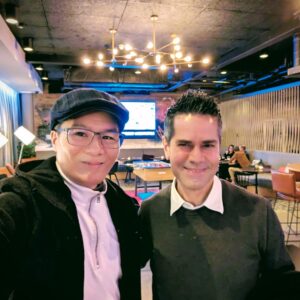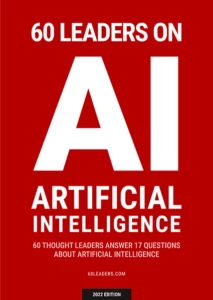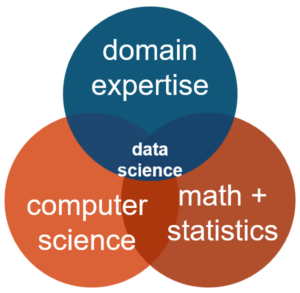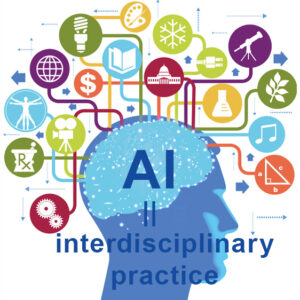The Curricula and Skills for a Career in AI
In 2021, I was privileged to be invited to contribute to an e-book: 60 Leaders on AI. This e-book was put together by George Krasadakis, a seasoned innovation expert with over 20 years of experience working with technology startups, consulting firms, and large corporations. He is the author of the book “The Innovation Mode”, which provides a practical framework for driving cultural, technological, and organizational changes to foster innovation within organizations. If I were to guess, I believe this e-book was probably produced using one of his distributed innovation frameworks that aligns a group of culturally diverse, geographically dispersed, and extremely busy experts towards a singular goal.
George is also an experienced digital product developer, with expertise in AI, data analytics, and agile methodologies. He has designed corporate innovation frameworks, labs, and ideation systems, as well as a blockchain-based open innovation platform. Additionally, he’s an entrepreneur who has founded 4 tech startups, authored over 100 articles on innovation and technology, and currently holds over 25 patents, predominantly focused on AI solutions.
Because this e-book was written, edited, and published during the pandemic, I’ve never had the pleasure of meeting George in person. But when I was in Dublin for DMX last week, I found my chance. And it’s truly a pleasure to meet a kindred spirit.
The Book, the Contributors, and the Chapters
The 60 Leaders on AI is quite an interesting project because this e-book is a compilation of responses to 17 top-of-mind questions from the general public about AI, where each question is a chapter. And the 60 thought leaders providing the answers to these questions consist of a very diverse group with different cultural backgrounds from all over the world, spanning across both academia and industry.
Each of the 60 thought leaders was asked to pick up to 3 questions that they are passionate about and provide their unique perspective. The natural overlap of passion among the 60 leaders offers different viewpoints and answers to each of the 17 questions. And because the 60 leaders are a very diverse group, this book offers a well-rounded and holistic perspective to each question.
As many of you know, I am just as passionate about education (i.e. human learning) as with machine learning. So one of the questions I chose to answer is the following:
What is the Academic Curriculum for a Successful Career in Artificial Intelligence?
What are the key specializations in the AI space? What are the essential skills required for a successful career in the AI space? What should be the ideal academic background for a successful AI professional?
If you are interested in what others have to say about this question, you can read it HERE or download the entire FREE e-book. But here is my perspective.
AI is already one of the hottest professions in the years to come. This trend is further accelerated by the pandemic, driving the rapid adoption of contactless digital technologies, many of which require AI to provide a good user experience. So how can you get involved and be successful in this exciting field?
The Foundations
Clearly, a solid foundation in STEM education is crucial. AI is essentially applied machine learning to automate everyday human decisions and actions with the ability to learn and improve through feedback. And machine learning (ML) is nothing more than applied statistics to large-scale problems with high dimensionality. So you are going to need the math (mainly linear algebra and numerical optimization) and the statistics background to think and talk like an AI professional. And you are going to need the coding and computer science (CS) skills to turn your brilliant ideas into efficient and scalable algorithms.
This foundation is a stepping stone to a successful career in AI, but it’s insufficient because AI is evolving so rapidly. Although many universities are offering programs in data science, they can’t keep pace with the latest technologies in the industry. This is where boot camps and conference workshops come in handy, but you do need the math, stats, and CS background to get the most out of these extracurricular trainings.
Finally, to be successful in AI, you will need to enrich the fundamentals you learned from school (which tends to be very generic) with domain-specific knowledge (which is rarely taught in school) through internships. This will also provide you with hands-on experience with large-scale cloud-based storage and computing technologies that are crucial for developing, deploying, and maintaining AI-based solutions in the real world.
The Need to Specialize
There are even specializations based on the development lifecycle of the AI solution. AI researchers tend to focus on the development of new ML algorithms, which leverage new data sources or use different ML paradigms. Although many industrial applications of ML use the supervised learning paradigm (which includes deep learning), there are more and more applications that leverage ensemble learning, reinforcement learning, adversarial learning, few-shot learning made possible by pre-trained models (e.g. ChatGPT), and many others (e.g. semi-supervised learning, unsupervised learning, active learning, online learning, transfer learning, transductive learning, etc.). AI researchers may sometimes need to develop new learning paradigms to optimize the utilization of the available training data.
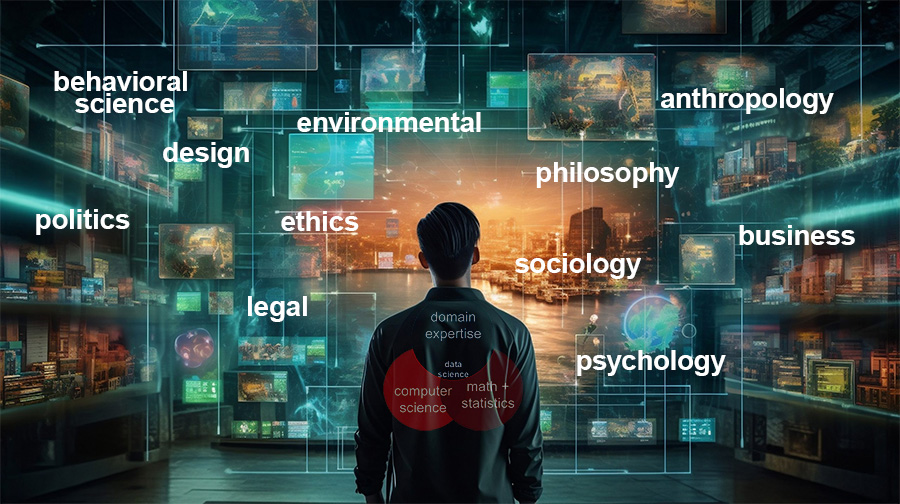
Once a new ML algorithm is developed and tested, they are ready for use in AI applications. This is where AI solution architects and AI application engineers come in. Due to the rapidly evolving field around AI, these titles will likely change over time. Because they aim to build AI solutions to address business problems, they are sometimes referred to as AI data scientists or AI scientists in general. These AI scientists will design and build AI applications using the new ML algorithm as a mechanism to learn through feedback data. This will enable the AI applications to improve upon the decisions it automates with usage. Although the specializations in AI arose out of practicality, it’s perfectly fine to be a jack of all trades in AI, but you do need to have expertise in at least one area to be successful.
From Good to Great
As you can see, it’s not easy to be at the center of the AI revolution. If you can check all the boxes mentioned above, you are likely a very good AI scientist already. However, AI is a very versatile tool, and it can be applied to such a wide range of problems that it’s been said that AI will catalyze the Fourth Industrial Revolution. So in practice, AI is inherently an interdisciplinary subject. This often poses challenges for those working in a technical area of AI, because they must frequently collaborate with people from all walks of life. For example, you may need to work with lawyers to understand the legality of using certain data attributes. You may need to work with user experience designers to ensure the AI tool you are building will drive adoption. You may even need to work with anthropologists and sociologists to understand the societal impact of deploying your AI tool.
What distinguishes a very good AI scientist from a great one is the ability to comprehend these interrelated disciplines around AI and the ability to communicate and work with a highly diverse group of experts. Having the working knowledge in these tangential disciplines would make you a highly desirable AI job candidate. The good news in all this is that you don’t need to be technical to work in AI. We need designers, ethicists, lawyers, doctors, teachers, entrepreneurs, and many others to help AI scientists build AI solutions that are more user-friendly to the layman, more compliant to ethical standards, and use data more responsibly.
Conclusion
So my advice to the future generation of AI enthusiasts is this, “stay curious and follow your passion.” It is likely that in whatever you do or wherever your passion leads you, there will be some domain-specific AI tools that you can use, enhance, or maintain. And if you are curious enough, you will find the resources to learn what’s necessary to excel in ML and AI. Aside from proprietary algorithms and domain-specific knowledge, most of the resources you need to get started with ML and AI are freely accessible on the Internet as open-source content.
In the future, AI will be everywhere in everything that we do, just as the computer is today regardless of your job and your role. Unless you want to design, build, or deploy an AI system all from scratch, you will not need a technical background or coding skills to make valuable contributions to an organization using AI. Large language models (LLM), like ChatGPT, can already translate human language to computer codes today. They aren’t perfect yet, and still require a pair of technical eyes to validate the generated codes, but they will get much better quickly. In the future, anyone can be an AI professional.
DISCLAIMER: The content of this article was first published by 60 Leaders on AI. Here is the latest revision and a current rendition of the raw manuscript submitted to the publisher. It differs slightly from the originally published version.


